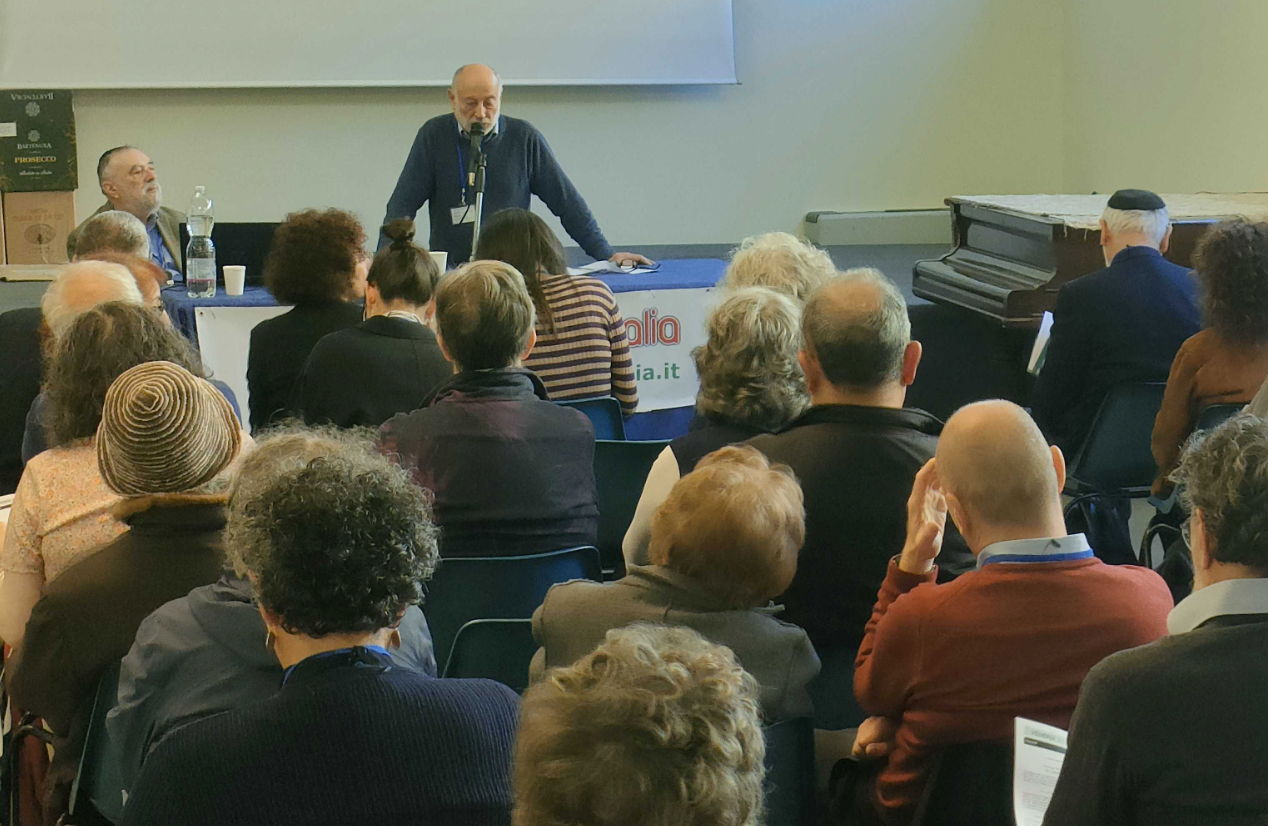FLORENCE – 100th anniversary of Zionist Congress commemorated at Limmud Italy Days

“Limmud does not seek to legitimize or delegitimize any religious or political stance within the Jewish world. Anyone attending Limmud with this intention will be disappointed.” In line with its tradition, the ninth edition of Limmud Italy Days – a study and dialogue event that concluded on Sunday in Florence – has focused on fostering “constructive debates” by moving beyond “academic teaching” and encouraging “a bidirectional approach” where each participant is both a student and a teacher. Dozens of topics were offered, as usual, with many touching on current issues.
The opening session of Limmud commemorated the 100th anniversary of the Zionist Congress held from November 2 to 4, 1924, in Livorno, where future figures of Italian Judaism, along with already prominent individuals, gathered. “It included General Zionists, Revisionist Zionists, and anti-Zionists,” explained Sandro Servi of the organizing committee, recalling that discussions centered around the ideals advocated by Theodor Herzl and developed by his successors, while other national issues, such as the assassination of socialist MP Matteotti by fascist militia in 1924, took a back seat.
For many participants, the congress marked a turning point. Among them was 19-year-old Enzo Sereni from Rome, who would soon make aliyah (emigration to Israel) and become a prominent leader in Italian Zionism. Sereni’s ideas, along with those of three other influential speakers from the 1924 congress—Nello Rosselli, Alfonso Pacifici, and Dante Lattes—were presented to the Limmud audience.
This diverse mosaic of ideals and identity reflection offers a starting point to assess the present, considering “where we have arrived today” from those foundational ideas and how the Jewish world has evolved, “facing challenges, celebrating achievements, and overcoming the tragedy of the Shoah.”
Topics for discussion this year included “the ethics of war,” examined through Jewish sources, the redemption of prisoners in both ancient and modern contexts, “how to preserve Shabbat in the modern world,” “the sense of smell in the Torah,” and the current state of pacifist movements. One session analyzed six sketches from the satirical television show Eretz Nehederet, focusing on the post-October 7 context. As noted, even in Israel, “there’s room to laugh.”
a.s
